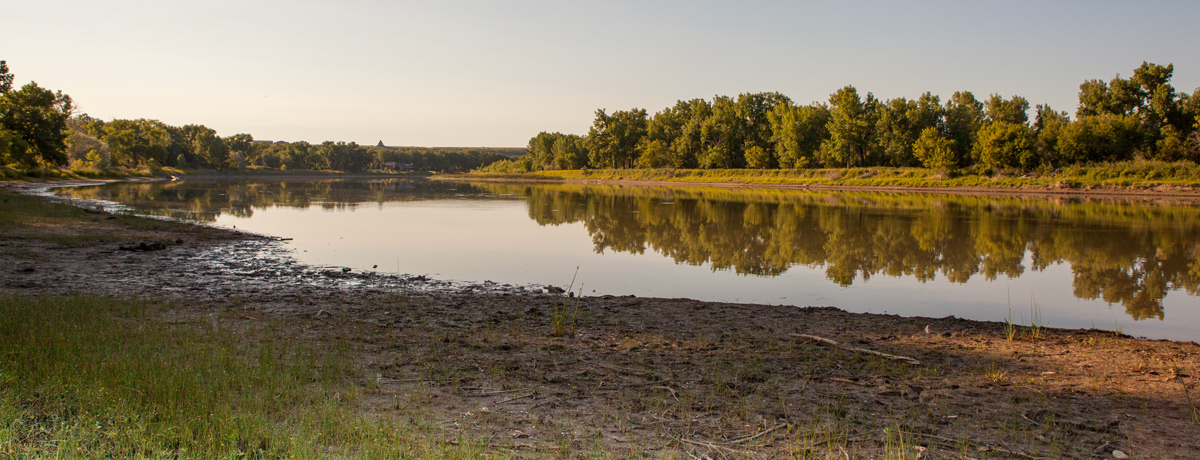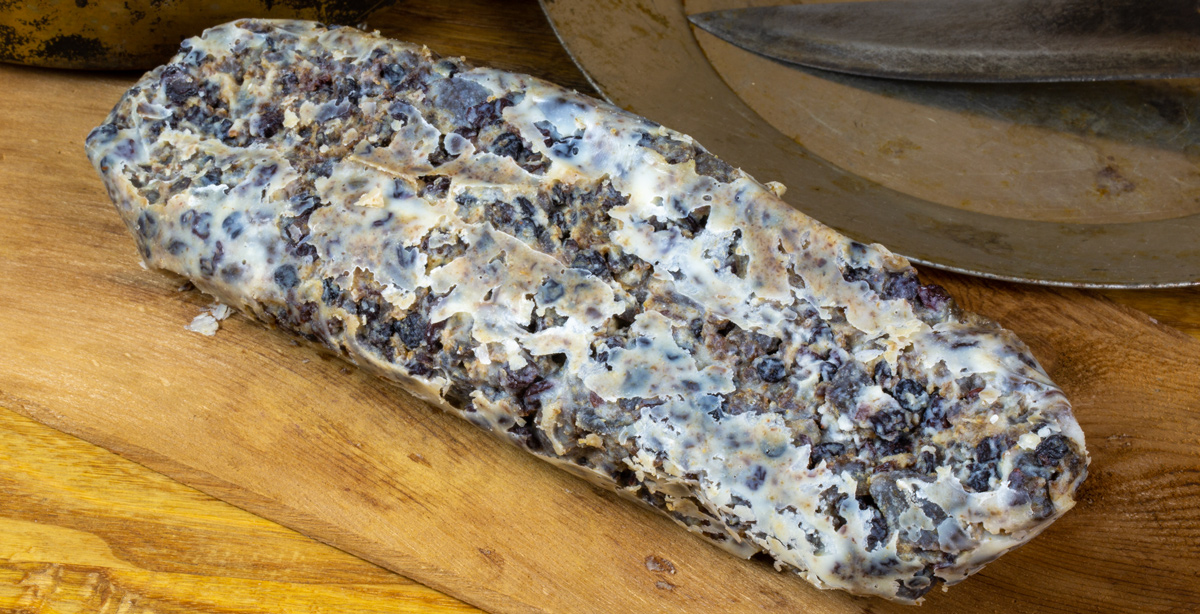Lewis and the last of the crew leave the White Bear Islands above the Great Falls of the Missouri. Traveling by land, Lewis, Pvt. Lepage, and Sacagawea see a Blackfeet Sundance lodge and are tormented by mosquitoes. At the canoe camp near present Ulm, Clark has “an emensity of meat” dried to make pemmican.
Captain Lewis Prepares to Move On
by Yellowstone Public Radio[1]Originally aired weekdays by Yellowstone Public Radio during the Bicentennial observance of 2003-2006. Narrated by Hal Hansen. Scripts by Whit Hansen and Ed Jacobson. Produced by Leni Holliman. © … Continue reading
Missouri River below Clark’s Canoe Camp
© 2 July 2013 by Kristopher K. Townsend. Permission to use granted under the Creative Commons Attribution-Share Alike 4.0 International license.
Leaving the White Bear Islands
I now bid a cheerfull adue to my camp and passed over to the opposite shore. Baptiest La Page [Jean-Baptiste Lepage] one of the men whom I had reserved to man the canoes being sick I sent Charbono [Charbonneau] in his stead by water and the sick man and Indian woman [Sacagawea] accompanyed me by land.
—Meriwether Lewis
Delayed by Wind
we loaded the canoes eairly and Set out with all the remainder of our baggage for the upper Camp. the wind rose so high that 2 of the canoes took water. it oblidged us to halt and dry our baggage. the wind continued untill towards evening. then abated a little and we proceeded on about 7 miles and Camped.
—John Ordway
Blackfeet Sundance Lodge
in my way I passed a very extraordinary Indian lodge, or at least the fraim of one . . . . it was most probably designed for some great feast, or a council house on some great national concern.
—Meriwether Lewis
Pemmican
© 2020 Kristopher K. Townsend. Permission to use granted under the Creative Commons Attribution-Share Alike 4.0 International license.
An immensity of Meat
we eat an emensity of meat; it requires 4 deer, an Elk and a deer, or one buffaloe, to supply us plentifully 24 hours. meat now forms our food prinsipally as we reserve our flour parched meal and corn as much as possible for the rocky mountains which we are shortly to enter, and where from the indian account game is not very abundant.
—Meriwether Lewis
Making Pemmican
The Hunters killed 3 Buffalow the most of all the meat I had dried for to make Pemitigon.
—William Clark
Mosquito Netting Required
I sent a man to the canoes for my musquetoe bier which I had neglected to bring with me, as it is impossible to sleep a moment without being defended against the attacks of these most tormenting of all insects; the man returned with it a little after dark.—
—Meriwether Lewis
Weather Diary
State of the thermometer at rise
Weather at rise
Wind at rise
State of the Thermometer at 4 P.M. Weather at 4 P.M. Wind at 4 P.M. State of the river 42 [above 0] fair S W. 76 [above 0] fair S. W. fallen ¼ in. Wind violent in the latter part of the day
—Meriwether Lewis[2]To assist the reader, the editor of this web page has omitted the date column, merged the “State of the river” columns, and spelled out some abbreviations.
Experience the Lewis and Clark Trail
The Lewis and Clark Trail Experience—our sister site at lewisandclark.travel—connects the world to people and places on the Lewis and Clark Trail.
Plan a trip related to July 13, 1805:

The Great Falls Portage is a High Potential Historic Site along the Lewis and Clark National Historic Trail managed by the U.S. National Park Service. It includes Sulphur Springs (open to the public) and Lower Portage Camp camp site (private land), and the Upper Portage Camp Overlook.
Notes
| ↑1 | Originally aired weekdays by Yellowstone Public Radio during the Bicentennial observance of 2003-2006. Narrated by Hal Hansen. Scripts by Whit Hansen and Ed Jacobson. Produced by Leni Holliman. © 2003 by Yellowstone Public Radio. |
|---|---|
| ↑2 | To assist the reader, the editor of this web page has omitted the date column, merged the “State of the river” columns, and spelled out some abbreviations. |




